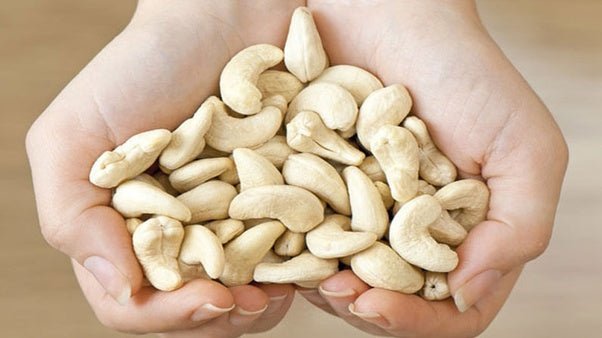
Cashew Nuts and Diabetes: Understanding Their Effects on Blood Sugar
Share
For individuals managing diabetes, making informed dietary choices is crucial for maintaining blood sugar levels within a healthy range. Cashew nuts, with their rich flavor and nutritional profile, may raise questions regarding their suitability for those with diabetes due to their carbohydrate content. In this article, we'll explore the effects of cashew nuts on blood sugar levels and provide insights into how they can be incorporated into a diabetes-friendly diet.
1. Impact on Blood Sugar
Cashew nuts contain carbohydrates, albeit in smaller quantities compared to other foods like grains or legumes. However, they are also rich in healthy fats, protein, and fiber. These nutrients can help slow down the absorption of carbohydrates, leading to a gradual rise in blood sugar levels rather than a sudden spike.
2. Glycemic Index (GI)
The glycemic index (GI) measures how quickly carbohydrates in a food raise blood sugar levels. Foods with a low GI (55 or less) are digested and absorbed more slowly, causing a gradual increase in blood sugar levels. Cashew nuts have a low GI, which means they have a minimal impact on blood sugar levels when consumed in moderation.
3. Nutrient Density
Despite containing carbohydrates, cashew nuts offer a range of nutrients that can benefit individuals with diabetes. They are a good source of healthy fats, which can improve insulin sensitivity and reduce the risk of cardiovascular complications associated with diabetes. Additionally, cashew nuts provide protein and fiber, both of which can help regulate blood sugar levels and promote satiety.
4. Moderation and Portion Control
While cashew nuts can be included in a diabetes-friendly diet, portion control is key. Due to their calorie density, excessive consumption of cashew nuts can lead to weight gain, which may exacerbate diabetes symptoms. It's important to enjoy cashew nuts in moderation and be mindful of portion sizes to prevent overeating.
5. Ways to Incorporate Cashew Nuts
Here are some diabetes-friendly ways to incorporate cashew nuts into your diet:
Enjoy a small handful of raw or roasted cashew nuts as a snack between meals.
Add chopped cashew nuts to salads or stir-fries for extra flavor and texture.
Use cashew butter as a spread on whole grain toast or as a dip for fruit and vegetables.
Include cashew nuts in homemade trail mix with other nuts, seeds, and dried fruits for a satisfying snack.
6. Conclusion
In conclusion, cashew nuts can be a part of a balanced diet for individuals with diabetes when consumed in moderation. Their low GI, nutrient density, and impact on blood sugar levels make them a suitable option for managing diabetes. By incorporating cashew nuts into meals and snacks as part of a well-rounded eating plan, individuals with diabetes can enjoy their delicious flavor and reap the nutritional benefits they provide. However, it's essential to practice portion control and monitor blood sugar levels to ensure they remain within target ranges.
1. Impact on Blood Sugar
Cashew nuts contain carbohydrates, albeit in smaller quantities compared to other foods like grains or legumes. However, they are also rich in healthy fats, protein, and fiber. These nutrients can help slow down the absorption of carbohydrates, leading to a gradual rise in blood sugar levels rather than a sudden spike.
2. Glycemic Index (GI)
The glycemic index (GI) measures how quickly carbohydrates in a food raise blood sugar levels. Foods with a low GI (55 or less) are digested and absorbed more slowly, causing a gradual increase in blood sugar levels. Cashew nuts have a low GI, which means they have a minimal impact on blood sugar levels when consumed in moderation.
3. Nutrient Density
Despite containing carbohydrates, cashew nuts offer a range of nutrients that can benefit individuals with diabetes. They are a good source of healthy fats, which can improve insulin sensitivity and reduce the risk of cardiovascular complications associated with diabetes. Additionally, cashew nuts provide protein and fiber, both of which can help regulate blood sugar levels and promote satiety.
4. Moderation and Portion Control
While cashew nuts can be included in a diabetes-friendly diet, portion control is key. Due to their calorie density, excessive consumption of cashew nuts can lead to weight gain, which may exacerbate diabetes symptoms. It's important to enjoy cashew nuts in moderation and be mindful of portion sizes to prevent overeating.
5. Ways to Incorporate Cashew Nuts
Here are some diabetes-friendly ways to incorporate cashew nuts into your diet:
Enjoy a small handful of raw or roasted cashew nuts as a snack between meals.
Add chopped cashew nuts to salads or stir-fries for extra flavor and texture.
Use cashew butter as a spread on whole grain toast or as a dip for fruit and vegetables.
Include cashew nuts in homemade trail mix with other nuts, seeds, and dried fruits for a satisfying snack.
6. Conclusion
In conclusion, cashew nuts can be a part of a balanced diet for individuals with diabetes when consumed in moderation. Their low GI, nutrient density, and impact on blood sugar levels make them a suitable option for managing diabetes. By incorporating cashew nuts into meals and snacks as part of a well-rounded eating plan, individuals with diabetes can enjoy their delicious flavor and reap the nutritional benefits they provide. However, it's essential to practice portion control and monitor blood sugar levels to ensure they remain within target ranges.
